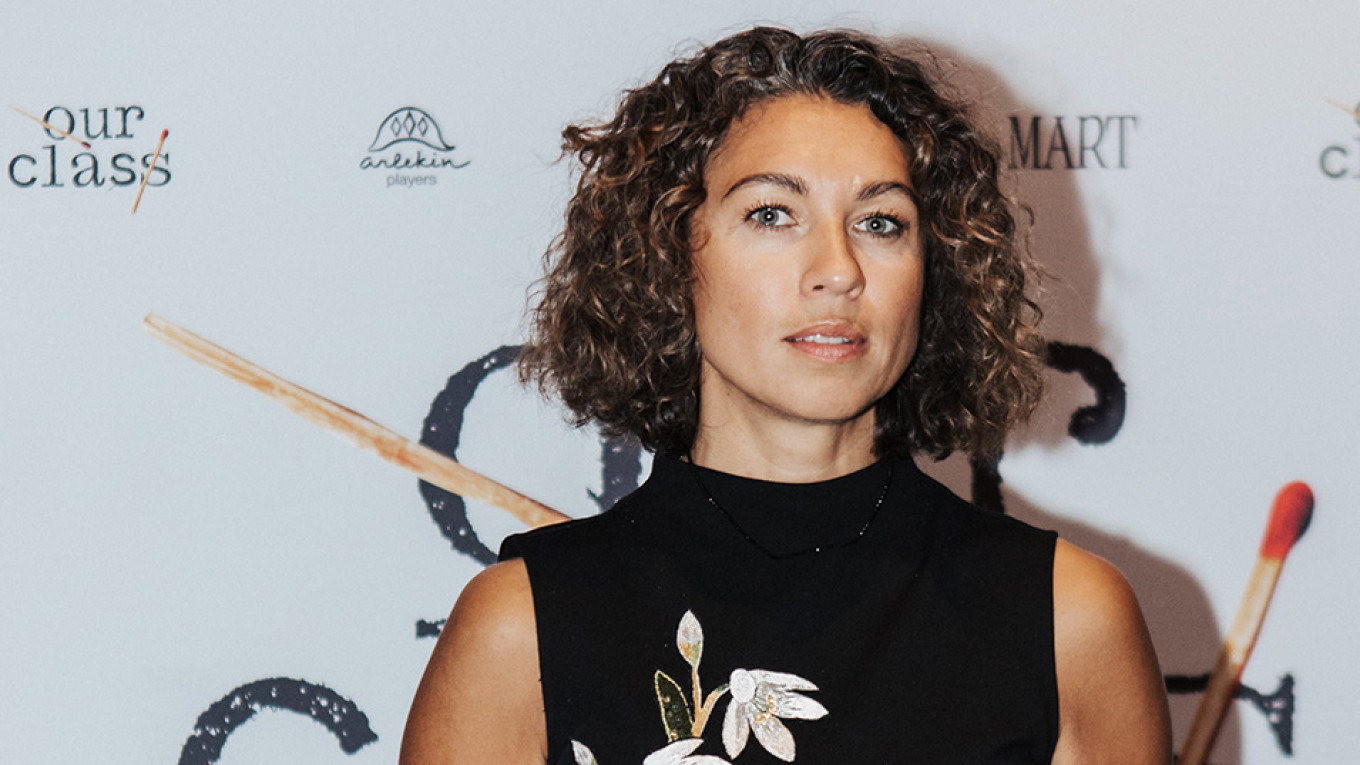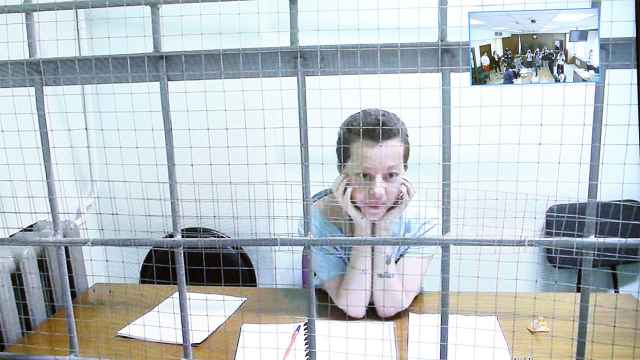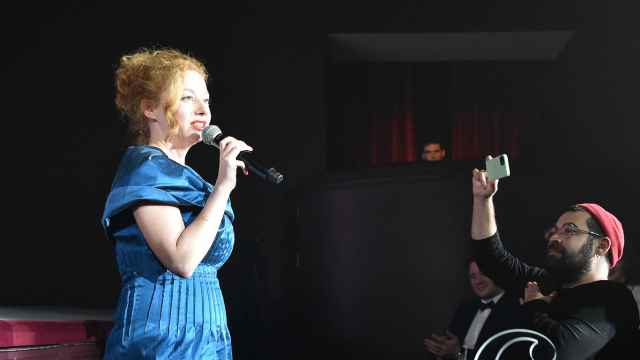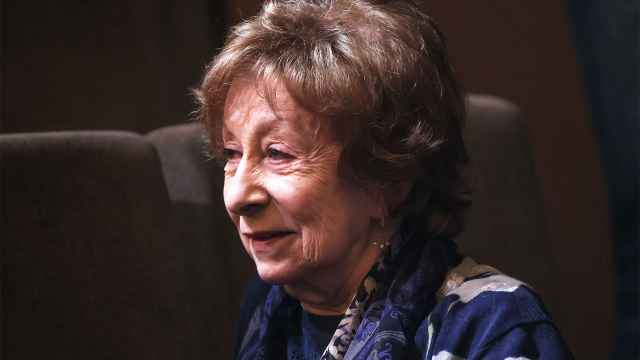Sofia Kapkova, the founder and former director of DFC (Documentary Film Center) in Moscow and the CEO of the MART Foundation which organizes tours of Russian theatre and music abroad, left Russia for the U.S. three days after the start of the full-scale invasion of Ukraine.
Since then, she has produced "Our Class," a critically acclaimed show that had a successful run at the Brooklyn Academy of Music last spring. "Our Class" has just opened for a second run (through November) at the Classic Stage Company, one of the oldest Off-Broadway theater companies.
The Moscow Times spoke to Kapkova about her move to New York, the experience of producing "Our Class," and her future plans.
Andrei Muchnik: Let's start with your departure from Russia after the war. What were your thoughts and emotions at that moment, and what did you have to leave behind?
Sofia Kapkova: The thing is: I've had dual citizenship for a long time. I am a lucky person. I decided in 2016 for the first time in my life to try to find out what the diversity visa was about, and how the lottery is conducted. I filled out the form, forgot about it, and, suddenly, won.
When I got the documents, I immediately registered my own company here — the MART Foundation. I thought that if I started an American foundation, we would be able to bring projects to the U.S. that would not normally make it here.
Before the war, Russian theatre and music companies toured abroad a lot. I don't want to sound like a snob, but they weren't always to my taste. The Gogol Center never went to America, never toured abroad at all. Leonid Desyatnikov is an outstanding composer, yet his music had never been presented anywhere outside of Russia. When we came up with the idea of the MART Foundation, we did it to show the world that there is a different circle of Russian artists who can fit into the international, global agenda.
We managed to achieve a lot with the MART Foundation before the war. We successfully organized tours for Leonid Desyatnikov, produced a new show by Kirill Serebrennikov for the Avignon Festival in France and arranged a tour for the Gogol Center in Israel.
On February 24, I woke up in Moscow with two of my three children, and I realized this was a sign. That morning, I had a meltdown: I realized I couldn't stay there, though I am not judging those who did.
AM: Were you still running the Documentary Film Center (DFC) at the time?
SK: By that point, I hadn’t been handling the day-to-day operations for some time, but I was still the "face" of the project. DFC was quite successful; we had just launched an online platform that had a potentially bright future.
I was terrified because of the horror of what was happening. Most importantly, I was scared of not knowing what was going to happen next. I have always had this anxiety since childhood — what if they close the borders again?
My eldest daughter, who is now 24 years old, has already been living in America for some time. I was afraid I would be left with two children in Russia while my eldest was in the U.S., and I wouldn't be able to fly to her. That was the scariest thing for me.
I dropped everything and bought a ticket. We departed on February 27; it was Aeroflot’s last direct flight to New York. When we were already flying through Canadian airspace there was an announcement that it was closed to Russian airplanes.
For a while, we were just suspended in the air. There was panic on the plane, and the Wi-Fi was cut off immediately. My youngest daughter, who was born in New York and speaks both English and Russian, sometimes confuses words. Very often, she asks, "Mom, what does this word mean?" in one language or the other.
At some point, she started yanking my hand and saying, “What does this word mean? What's going on? There's a woman screaming, 'This is war, this is war.' What is war?” It was actually a rather cinematic scene. I explained, and at that moment, I realized that I would never go back to Russia again.
In the end, we landed back at Sheremetyevo and spent a few hours at the airport before traveling to New York via Istanbul. Instead of a 10-hour direct flight, it took us 57 hours to get here.
On the plane from Istanbul, a woman heard me speaking Russian and asked where we were from. I said Moscow, and it turned out she was a Russian immigrant living on Brighton Beach. She asked where we lived in New York. I said, "Nowhere" — I didn't have an apartment in New York. She looked at me and suddenly said in English, "Oh my God, you're a refugee."
AM: How did you come up with the idea for the “Our Class” production?
SK: I realized that I wanted to do a play. I spent a lot of time searching for material, watching, and then one night, I woke up and thought, why am I digging so deep when there's an amazing play by Tadeusz Słobodzianek, “Our Class”?
This play was written in 2008. It is based on the tragic events that occurred in the small Polish town of Jedwabne (population 3,000, including 1,600 Jews) in the summer of 1941. One day, the Jewish residents were gathered in a barn and burned alive.
Only in the 2000s it was officially proven and accepted that this atrocity was not committed by Nazi Germany, but by their neighbors. These were people who had gone to school together and celebrated holidays together.
I realized that I wanted to produce the play in English and stage it in New York. Despite there being 15 versions of this play, one of which is still running at the Vakhtangov Theatre in Moscow, it has never been performed in New York, a city with a significant Jewish population.
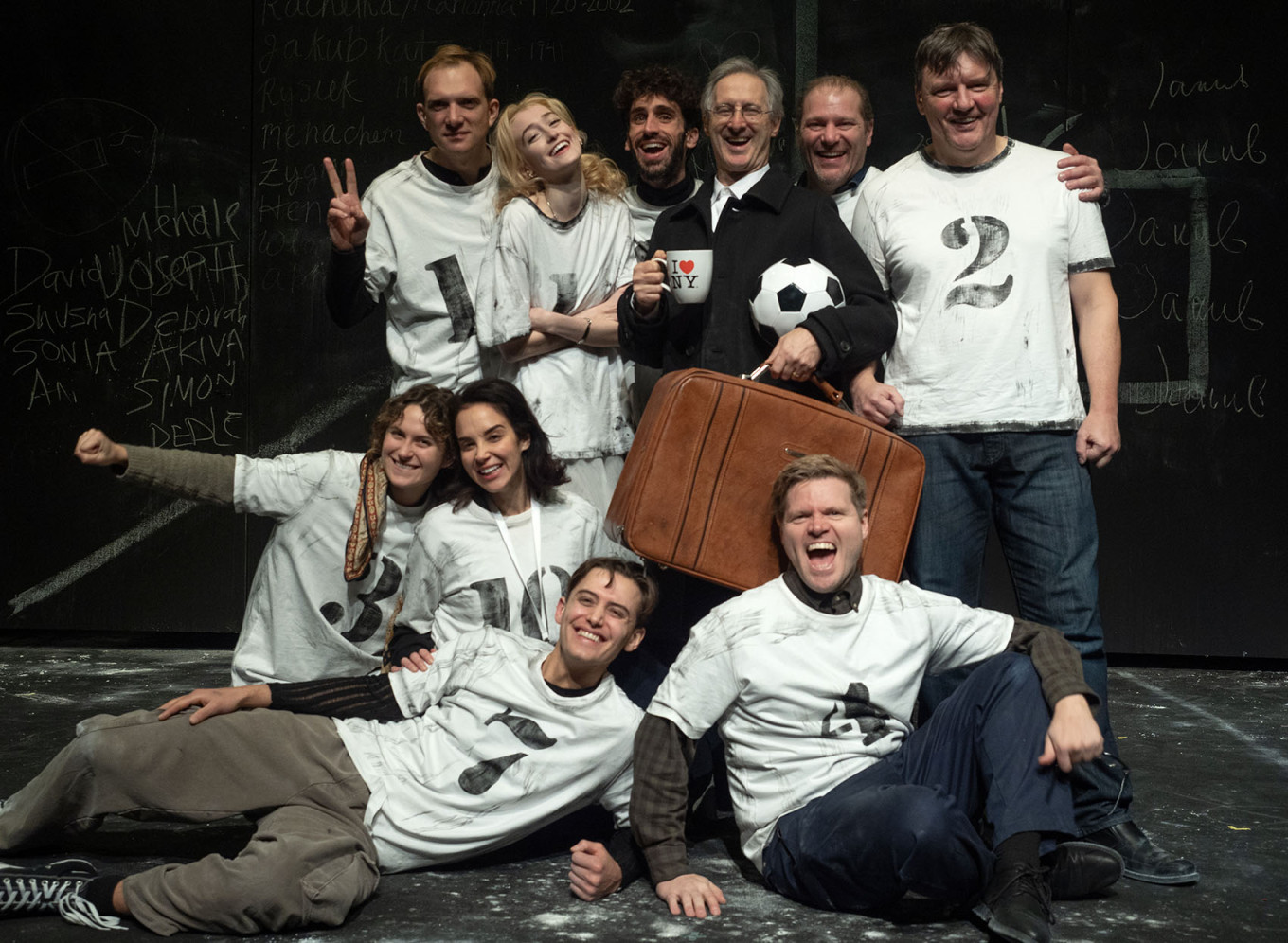
The Moscow version of “Our Class” at the Vakhtangov Theatre focuses on the past, highlighting its horrors and the importance of preventing such events from happening again. However, I wanted to create a play that addresses the present — how we live our lives while committing similar acts.
Next, I started looking for a director. At the time, I didn't personally know Igor Golyak, an American-Ukrainian director with his own theater company, Arlekin Players Theatre. His previous project was a performance with Mikhail Baryshnikov.
I had a casual meeting with Sara Stackhouse, a producer who has been working with Igor for many years. She asked me what kind of dream I had at the moment and I told her that I wanted to produce a play here in New York. I began describing the plot of "Our Class" and, suddenly, her eyes went wide. "Unbelievable, Igor told me about it!" she exclaimed.
It turned out that Igor and I had the same dream — directing “Our Class.” Sara called Igor and he came over. We ended up talking through it, hearing each other out. I explained my vision and soon we began looking for funding.
AM: When did you realize that “Our Class” was a success?
SK: One day, a woman came with a gift. After the performance, there was a Q&A with Tadeusz Słobodzianek, the playwright. This woman stayed for the Q&A, and when it was over, she came up to me and said in Russian, “Sofia, I'm so impressed with how you answered the questions. I brought a gift and I'd like to give it to you.”
I tried to refuse, but she insisted, saying she had made it with her own hands. She opened her bag and pulled out a freshly baked loaf of bread wrapped in paper. That is the kind of warmth from the audience that you strive for.
AM: How did you land a full season at the Classic Stage Company?
SK: Since there were some good reviews, producers and agents started coming to see "Our Class" during its last week at the Brooklyn Academy of Music. We talked to various people, and at some point, the Classic Stage Company came along and offered us a full season. We'll be performing "Our Class" there from September to November.
AM: What are your plans for the future?
SK: I am working on a new project — MART is co-producing Sharon Eyal & Gai Behar’s "Into the Hairy" (2023) for Nederlands Dans Theater. The premiere is set for the spring of 2025. I am also working with Akram Khan, one of the best contemporary choreographers. We are in the middle of rehearsals right now, so I can’t share any details.
An earlier version of this article inaccurately stated that Kapkova is the director of "Our Class." She is the producer.
A Message from The Moscow Times:
Dear readers,
We are facing unprecedented challenges. Russia's Prosecutor General's Office has designated The Moscow Times as an "undesirable" organization, criminalizing our work and putting our staff at risk of prosecution. This follows our earlier unjust labeling as a "foreign agent."
These actions are direct attempts to silence independent journalism in Russia. The authorities claim our work "discredits the decisions of the Russian leadership." We see things differently: we strive to provide accurate, unbiased reporting on Russia.
We, the journalists of The Moscow Times, refuse to be silenced. But to continue our work, we need your help.
Your support, no matter how small, makes a world of difference. If you can, please support us monthly starting from just $2. It's quick to set up, and every contribution makes a significant impact.
By supporting The Moscow Times, you're defending open, independent journalism in the face of repression. Thank you for standing with us.
Remind me later.


